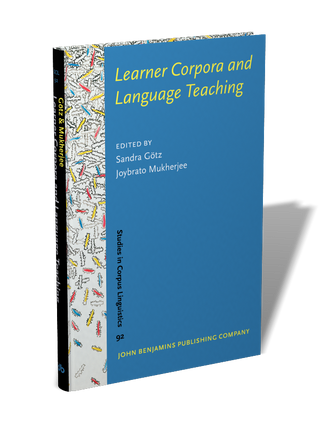?
To automated generation of test questions on the basis of error annotations in EFL essays: a time-saving tool?
Ch. 1-2. P. 29–48.
Olga Vinogradova
ПУБЛИКАЦИЯ ПОДГОТОВЛЕНА ПО РЕЗУЛЬТАТАМ ПРОЕКТА:
Штефан А. Н., Экономика: вчера, сегодня, завтра 2021 Т. 11 № 12-1 С. 241–247
Сектор индустриальных парков в России в настоящее время продолжает устойчиво развиваться. По данным статистики число индустриальных парков выросло с 80 в 2013 году до 334 по итогам 2020 года. Индустриальный парк с организационной точки зрения следует понимать как сложную производственную систему, эффективное функционирование которой возможно при оптимальном сочетании интересов всех стейкхолдеров, к которым следует отнести ...
Добавлено: 21 февраля 2026 г.
Устинова Н. П., Антипкина И. В., Мир психологии. Научно-методический журнал 2025 № 3(122) С. 143–154
В исследовании изучались факторы отношения преподавателей вузов к тестам как методу оценивания образовательных результатов. На выборке 160 преподавателей вузов было показано, что более негативное отношение к тестам было отрицательно связано с самооценкой знаний преподавателя в области методологии создания тестов и тестирования (r = -0,34) и положительно - с оценкой административного давления со стороны вуза в ...
Добавлено: 20 ноября 2025 г.
Perez-Guerra J., Смирнова Е. А., Journal of Language and Education 2024 Vol. 10 No. 1 P. 101–114
Добавлено: 3 марта 2024 г.
Ляшевская О. Н., Pyzhak J.V., Виноградова О. И., Russian Journal of Linguistics 2022 Vol. 26 No. 2 P. 471–492
В статье рассматривается словообразовательная сложность учебных текстов, которая трактуется как система измерений, показывающих разнообразие приемов словообразования разного уровня, от простых до продвинутых, используемых учащимся. Анализируется взаимосвязь между сложностью и ошибками, которые учащиеся допускают в словообразовании. Исследование основано на материалах REALEC - корпуса английских экзаменационных эссе, написанных студентами университета с родным русским языком. Предлагается подход к ...
Добавлено: 5 октября 2022 г.
M. A. Klimova, V. K. Smilga, D. A. Overnikova, , in: Труды международной конференции «Корпусная лингвистика–2021».: Скифия-принт, 2021. P. 112–121.
Добавлено: 31 октября 2021 г.
Смирнова Е. А., Стринюк С. А., Journal of English as a Lingua Franca 2020 Vol. 9 No. 1 P. 81–101
Добавлено: 14 октября 2020 г.
Виноградова О. И., Бузанов А. О., Генералова С. А. и др., , in: ПРОСТРАНСТВО НАУЧНЫХ ИНТЕРЕСОВ: ИНОСТРАННЫЕ ЯЗЫКИ И МЕЖКУЛЬТУРНАЯ КОММУНИКАЦИЯ - СОВРЕМЕННЫЕ ВЕКТОРЫ РАЗВИТИЯ И ПЕРСПЕКТИВЫВып. 3.: Буки Веди, 2019. Ch. 6 P. 44–49.
Добавлено: 28 декабря 2019 г.
Добавлено: 20 октября 2019 г.
Olga I. Vinogradova, Olga N. Lyashevskaya, Irina M. P., / NRU Higher School of Economics. Series WP BRP 55/LNG/2017. 2019. No. 79.
Добавлено: 10 октября 2019 г.
IEEE Computer Society, 2018.
Добавлено: 5 октября 2018 г.
Коротков А.О., Позин Б.А., Программная инженерия 2017 Т. 8 № 11 С. 483–489
В статье описаны результаты реализации инструмента генерации тестовых данных, методом разбиения значений входных параметров системы на классы эквивалентности для автоматизации комплексного функционального тестирования информационных систем, управляемых XML-сообщениями. ...
Добавлено: 24 ноября 2017 г.
Виноградова О. И., ПОЛИЛИНГВИАЛЬНОСТЬ И ТРАНСКУЛЬТУРНЫЕ ПРАКТИКИ 2018 Vol. 15 No. 2018/3 P. 372–380
The role of access to a learner corpus has proved to increase efficiency of L2 acquisition for learners as well as teaching efficiency for EFL instructors. This paper presents a computer tool for a learner corpus designed at the School of Linguistics of the Higher School of Economics for both categories of users. REALEC, Russian ...
Добавлено: 8 ноября 2017 г.
Ляшевская О. Н., Olga Vinogradova, , in: 4th Learner Corpus Conference. LCR 2017. Book of Abstracts.: Bozen: [б.и.], 2017. P. 200–202.
Добавлено: 8 ноября 2017 г.
Bozen: [б.и.], 2017.
Добавлено: 7 ноября 2017 г.
Рахилина Е. В., Выренкова А. С., Мустакимова Э. Г. и др., , in: Proceedings of the joint workshop on NLP for Computer Assisted Language Learning and NLP for Language Acquisition at SLTC.: Linköping: LiU Electronic Press, 2016. Ch. 10 P. 1–10.
Добавлено: 5 ноября 2017 г.
Ольшевская М. Ю., Международный аспирантский вестник. Русский язык за рубежом 2018 № 1 С. 13–18
На корпусном материале в статье рассматриваются распространенные ошибки в употреблении и конструировании вида глагола — с теоретической и типологической точек зрения. Используются данные учебного корпуса RLC, содержащего тексты изучающих русский язык как иностранный. Выявлены «слабые места» в усвоении данной темы иностранными учащимися. Предпринята попытка создания типологии ошибок. Показано, что наблюдаемые ошибки в образовании СВ глагола ...
Добавлено: 19 октября 2017 г.
Kondratov A. P., Konovalova M. V., Cherkasov E. P. и др., , in: MATEC Web of Conferences. 2016 Workshop on Contemporary Materials and Technologies in the Aviation Industry (CMTAI 2016), Moscow, Russia, December 15-16, 2016Т. 99.: [б.и.], 2017. Ch. 01004 P. 1–3.
Добавлено: 26 апреля 2017 г.
Пособие содержит 12 тренировочных вариантов тестовых заданий в формате ОГЭ и диск с текстами для аудирования. Материалы составлены в соответствии с кодификатором ОГЭ и школьной программой, что позволит их использовать в комплексе с любыми учебно-методическими комплектами по английскому языку для основной школы. ...
Добавлено: 28 декабря 2016 г.
Феногенова А. С., Кузьменко Е. А., / NRU HSE. Series WP BRP "Linguistics". 2016.
Добавлено: 14 декабря 2016 г.
